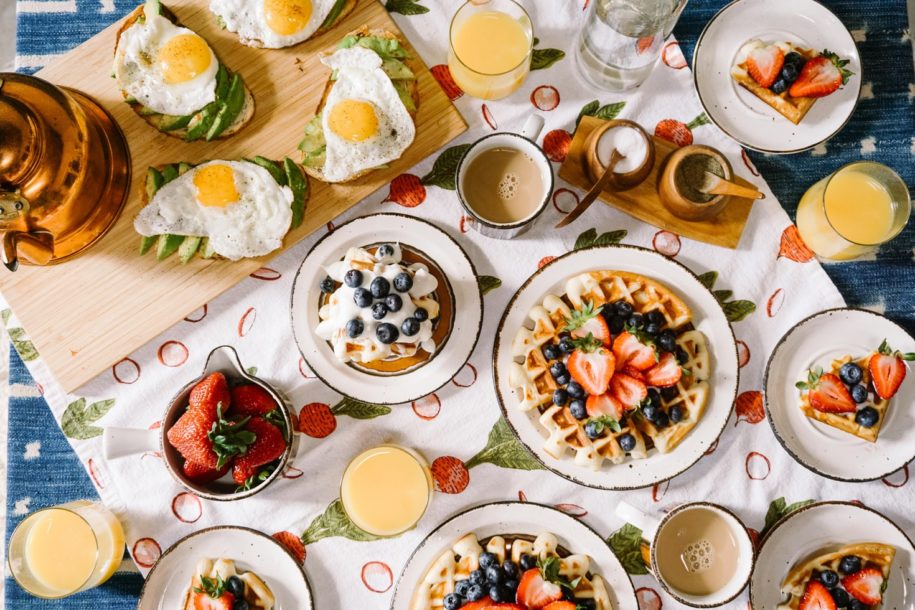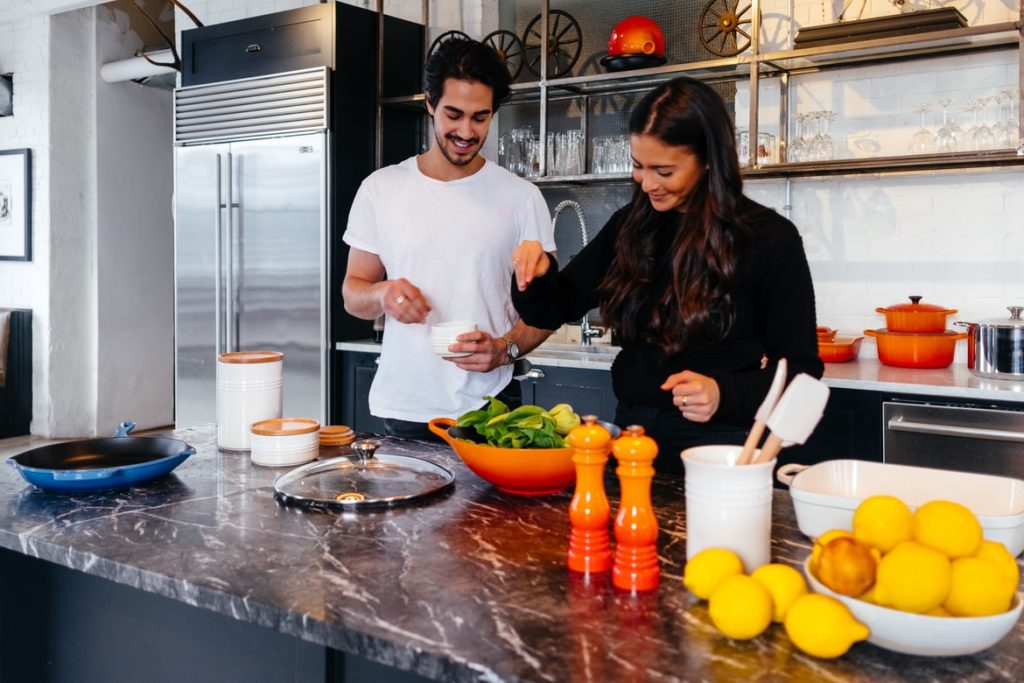By Sarah Ungerer


Tumpeng is my all-time favorite meal. It is a dish that includes a cone-shaped mountain of yellow rice with a variety of Indonesian entrées surrounding its base. The rich flavors of this food definitely contributes to my obsession; however, the biggest reason that I appreciate it is because of the memories associated with it. My family traditionally serves Tumpeng for momentous events, such as birthday celebrations, graduation parties, and Christmas dinners. And the best part? I have consistently enjoyed cooking alongside my mom and sharing our work with those around me.
When I was in high school, I remember spending a majority of my at-home meals alone. On the weekdays, my mom would typically cook. When she finished, every family member poured into the kitchen to fill their plate and take the food back to whatever room of the house they were previously working in. In other words, sit-down meals were not a regular occurrence among us. Everyone was so focused on finishing school assignments or work to the extent of these tasks interrupting the time that we could spend together. Our work-life balance was poorly distributed.
If a meeting at school ran late into the evening, I would ask my parents to bring dinner for me to eat on the car ride home. I believed that this strategy would give me more time to complete schoolwork upon returning to my room. At the onset of my in-person college experience, a significant portion of my meal times were spent alone or between commitments. I usually had my laptop open to work on an essay. Plus, if I am rushing to classes, I prepare my meals ahead of time and eat during my walk to the buildings.
So, why exactly am I reciting these habits? If those last two paragraphs seemed similar to how you incorporate eating into your schedule, you probably understand my hustle and bustle mentality. For many people, doing work feels good. It makes us feel productive and better appreciate the satisfying end products of hard work; however, where do we draw the line? Is a work-oriented mindset dangerous?
Here’s my big question–What does it mean to take a break?


As content as I am with the results of my diligence, I am completely aware that balance is important. It is not good to incorporate work into every aspect of life. When an individual chooses to do this, they are sacrificing quality time with others or simple moments of relaxation. Giving your brain the opportunity to shut down can help refresh your mind and bring needed peace to your body. This is one of the most important lessons that I learned from some of the best mentors in my lifetime thus far. And, based on my previous experiences, food is the perfect way to practice what it looks like to properly separate work and personal life.
My best suggestions to achieve this is as follows…
- Share your meal times with other people. – When the lunch bell rings at school, take your food out and leave your work under the zippers of your backpack. Sit with close friends, gather classmates to eat together before your next class, or attend a club meeting to keep you occupied with a community.
- Join your family when they cook food or gather people to work on a meal! – Cooking with others is an incredibly fun activity that fosters interpersonal relationships, builds community, and ultimately results in a good memory. You will be able to create good conversations and also build some teamwork skills as you tackle a recipe.
- Dinner and a movie for one? Yes, YOU can make it happen! – Is everyone around you already busy with plans? This is the ultimate chance to treat yourself! Set any work aside and order your favorite meal to eat as you binge your favorite show or cry through the best movie on your watch list. This is one of the best ways to wind down on your own. Get your brain some well-deserved time in front of some entertainment!


Now, let’s bring this conversation back to my favorite meal of all time–Tumpeng. This food is so special to me because of the experiences I had cooking it with my mom and then eating that home-cooked dish with family and friends. I can easily recall our flow of movement across the kitchen, the mix of instructional and personal conversations during the meal making, and the resulting appreciative reactions to our work. In the midst of the dinners, I clearly remember my exchanges with people at the table, the encompassing laughter, and the loving, light-hearted atmosphere.
I invite you to reflect on your habits with meals. Given my memories and recommendations, what can you do to prioritize a happier, more fulfilling eating experience? And, if you need a boost in the right direction, start by putting away your study guide and focusing on that food!



